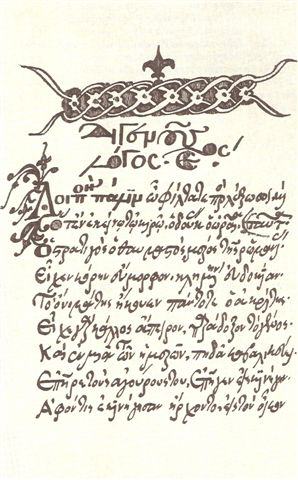I’ve been studying Biblical Greek from quite a young age, and at times I wondered about the songs the first Christians sang. I figured many of them must have been in Greek, but have any of these hymns survived to the present day? As I researched this question recently, I discovered that there actually are Greek Christian hymns that have come to us through the ages from the early years of the church. That is, we have the hymns themselves, but not the music to which they were set.
However, in Oxyrhynchus, Egypt, someone came across a very unique papyrus–one of a kind, in fact–on which someone had written a Christian hymn to the Trinity, along with Greek musical notation.
You may not have known that the Greeks knew how to write music. Well, they did, and were quite advanced in their ideas of modes and music theory. But the importance of this little piece of papyrus that someone threw in an Egyptian rubbish heap ages ago is not that it has music (there is a good amount of extant Ancient Greek music), but that it is a spiritual song from the time when most all such songs were written with only the words–if they were written at all. Read More
